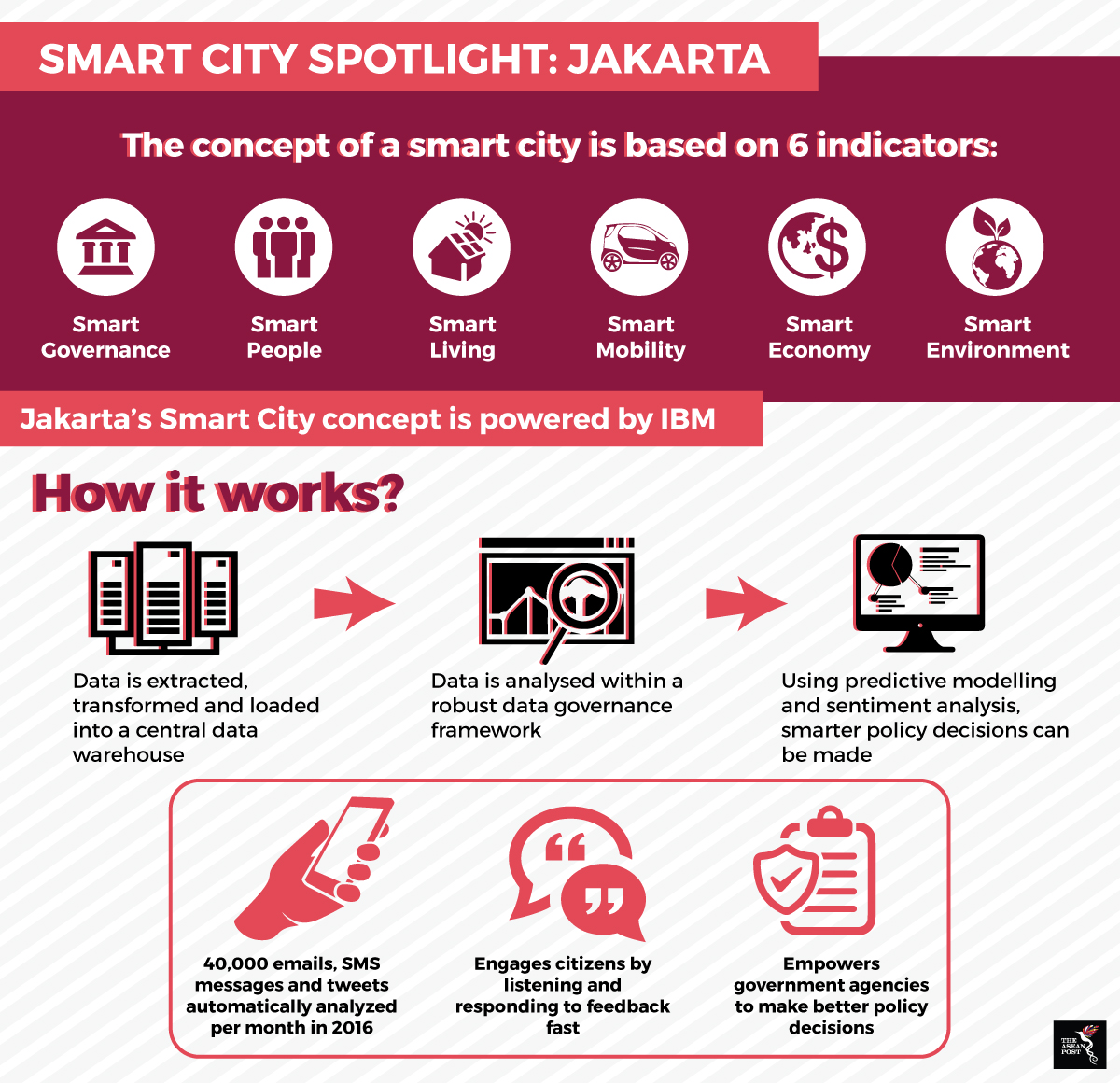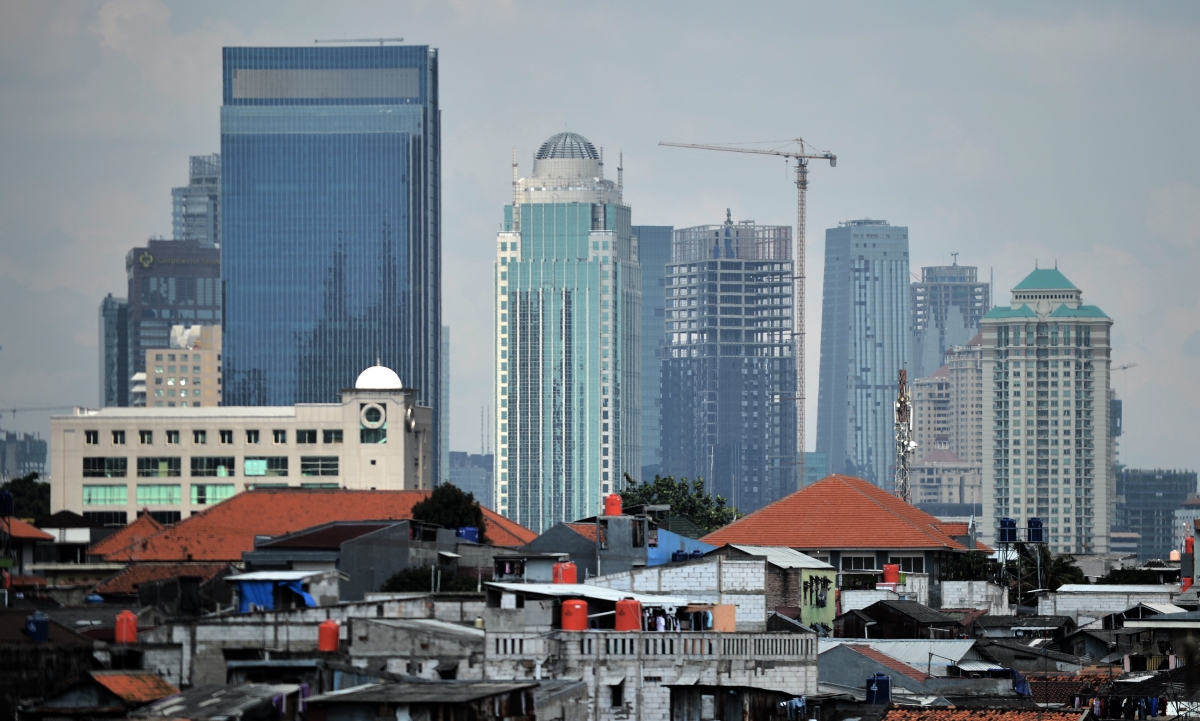The Indonesian capital of Jakarta is known worldwide for its luxury hotels, malls, antiques along Jalan Surabaya and various national and historical monuments – just to name a few. But a bustling city like that does come with a host of challenges to contend with.
Jakarta’s notorious traffic jams, minute spaces accorded to greenery, and rising population density, among others is something that city dwellers just have to contend with as part and parcel of daily life in Indonesia’s most developed conurbation.
All of this is set to change in the long run if Jakarta fully embraces the promise of becoming a smart city.
Established in 2015, Jakarta Smart City (JSC) – a management unit under the Jakarta Provincial Government – has been tasked with realising this smart city vision. It strives for a more data-driven, transparent and collaborative use of technology to ensure better public services for residents in the capital.
Jakarta’s smart city initiative is based on six indicators: Smart Governance, Smart People, Smart Living, Smart Mobility, Smart Economy, and Smart Environment. All these efforts are undergirded by active community participation with residents of the city free to offer suggestions along the way.
Citizens within the city can use BERiDE, a platform designed for them to convey their ideas for smart city development to the authorities. Besides that, they can also use Qlue, a complaint handling application which aims to synergise government and citizens and turn complaints into actionable insights.
Powered by IBM
JSC has leveraged on the vast technical expertise of global technology giant, IBM, to design a big data hub which would integrate information from citizen feedback, social networks and government services like healthcare, transport and water distribution. The data provided will then be analysed using the latest analytical, predictive modelling and sentiment analysis tools in order to produce more efficient policies to govern smart city development.
“We are taking our first steps with many of these technologies, and the guidance and training we have received from IBM has been very valuable,” says Diory Paulus, Head of Data and Analytics at JSC. “We are very keen to learn and share our knowledge with other government organizations, both within Indonesia and internationally.”

Source: IBM
According to Paulus, the system is already bearing fruit and has resulted in excellent policy decisions. It was recently used to shed light on garbage collection issues in one of the villages in Jakarta. A heatmap was plotted and the JSC found that most complaints came from areas where the garbage trucks failed to drive through. After which, they worked with the village council and the Jakarta waste management authorities to improve routing and scheduling of garbage collections which subsequently led to a decrease in complaints.
“Most important of all, analytics helps us show our citizens that their feedback really makes a difference. By showing the people of Jakarta that we are listening, we can keep them engaged in helping us build a city that is better for everyone,” Paulus remarked.
Battling congestion
Having been included among the 26 cities which make up the ASEAN Smart Cities Network (ASCN), Jakarta is the most populous city on the list with close to 11 million people living there. The metropolitan area surrounding the capital – Jabodetabek – is home to more than 30 million people, of which more than 1.2 million have to take an excruciating commute to Jakarta city centre daily.
If Jakarta truly wants to stand out as a premier smart city in the region, reducing congestion should be number one on its list of priorities.
The command centre in JSC is already working hard at forecasting traffic gridlocks before they take place using closed-circuit television (CCTV) footage and data from traffic navigation application, Waze. Data scientists at JSC are working towards predicting traffic bottlenecks in real time – by up to an hour in advance. They are also working with TransJakarta – a public bus provider – to streamline bus arrival frequencies in line with traffic conditions and user demand.
Jakarta has a long way to go in its journey towards becoming a leading smart city in the region. Solving congestion issues will definitely speed up the process and realise the city’s aspirations. Nevertheless, JSC’s efforts have ensured that the city of Jakarta is on the right path and could one day become a smart city that rivals other cities on the world stage.
